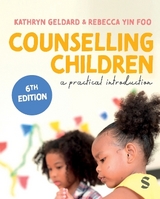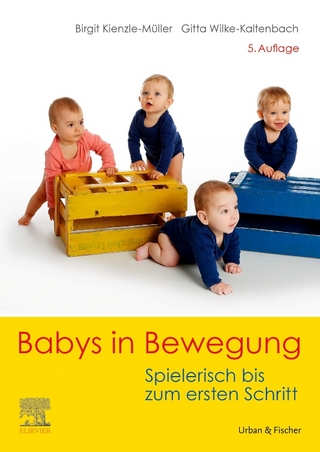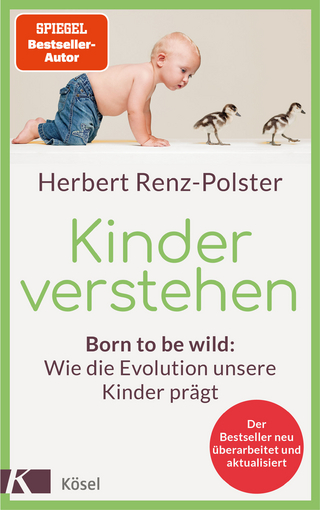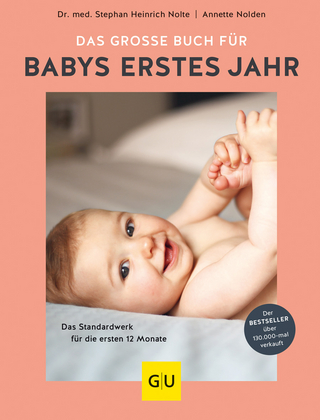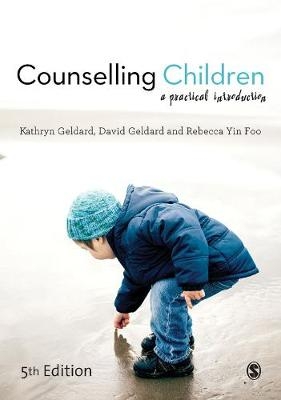
Counselling Children
SAGE Publications Ltd (Verlag)
978-1-4739-5333-8 (ISBN)
- Titel erscheint in neuer Auflage
- Artikel merken
The definitive guide to the skills and techniques used when working with children experiencing emotional problems, this book covers all you need to know about:
The goals for counselling children and the child-counsellor relationship
Practice frameworks for working effectively with children
Play therapy and the use of different media and activities
Building self-esteem and social skills through the use of worksheets.
This fifth edition has been updated to include:
A new chapter on technology; its influence on children and ways that technology can be used during counselling
New content on issues of diversity and difference in counselling children
The different contexts in which counselling children occur
Discussion of concepts of wellbeing and resilience
Updated references and research.
The book is supported by a new companion website that provides training materials and handouts on a range of skills for counselling children including: helping the child to tell their story sand tray work, the use of miniature animals, the use of clay, and helping the child to change thoughts and behaviour.
This highly practical guide is vital reading for counsellors, psychologists, social workers, occupational therapists, nurses and teachers working or training to work with children.
Dr Kathryn Geldard is now retired from clinical practice. She continues to conduct training workshops for counsellors and organisations and facilitate professional development supervision groups. Her academic career as senior lecturer in counselling at Queensland University of Technology and in the faculty of Arts and Business at the University of the Sunshine Coast (USC), Australia includes programme leadership of the Counselling programme as well as development of the postgraduate Master of Counselling degrees. She is the author of a several textbooks founded on her extensive clinical counselling background with children, young people and their families. David Geldard had extensive experience in working as a counselling psychologist with troubled children and their families. He worked in mental health and community health settings, and in private practice. Rebecca Yin Foo is an Educational and Developmental Psychologist who is experienced in providing psychological support for children with developmental disabilities and their families at the Cerebral Palsy League. Her work has led her to take a high level of practical and academic interest in ways of working with children to promote optimal positive outcomes. She currently works in private practice in Brisbane, Australia. Prior to obtaining her honours degree in Psychology and Master’s degree in Educational and Developmental Psychology she completed a Bachelor of Medical Engineering. She has published a number of journal articles and presented conference papers nationally and internationally in relation to her studies in both Engineering and Psychology. She is the third author of the book, Counselling Children: A Practical Introduction.
Introduction to the fifth edition
Part 1 Counselling Children
1. Goals for counselling children
2. The child-counsellor relationship
3. Ethical considerations when counselling children
4. Attributes of a counsellor for children
Part 2 Practice Frameworks
5. Historical background and contemporary ideas about counselling children
6. The process of child therapy
7. The child’s internal processes of therapeutic change
8. Sequentially Planned Integrative Counselling for Children (the SPICC model)
9. Counselling children in the context of family therapy
10. Counselling children in groups
Part 3 Child Counselling Skills
11. Observation
12. Active listening
13. Helping the child to tell their story and get in touch with strong emotions
14. Dealing with resistance and transference
15. Dealing with self-concept and self-destructive beliefs
16. Actively facilitating change
17. Termination of counselling
18. Skills for counselling children in groups
Part 4 Play Therapy – Use of Media and Activities
19. The play therapy room
20. The evidence-base for play therapy and counselling children
21. Selecting the appropriate media or activity
22. The use of miniature animals
23. Sand-tray work
24. Working with clay
25. Drawing, painting, collage and construction
26. The imaginary journey
27. Books and stories
28. Puppets and soft toys
29. Imaginative pretend play
30. Games
31. Technology
Part 5 The Use of Worksheets
32. Building self-esteem
33. Social skills training
34. Education in protective behaviours
Part 6 In Conclusion
| Erscheinungsdatum | 26.04.2018 |
|---|---|
| Verlagsort | London |
| Sprache | englisch |
| Maße | 170 x 242 mm |
| Gewicht | 1460 g |
| Themenwelt | Sachbuch/Ratgeber ► Gesundheit / Leben / Psychologie ► Familie / Erziehung |
| Geisteswissenschaften ► Psychologie ► Klinische Psychologie | |
| Sozialwissenschaften ► Pädagogik ► Sozialpädagogik | |
| Sozialwissenschaften ► Soziologie | |
| ISBN-10 | 1-4739-5333-2 / 1473953332 |
| ISBN-13 | 978-1-4739-5333-8 / 9781473953338 |
| Zustand | Neuware |
| Informationen gemäß Produktsicherheitsverordnung (GPSR) | |
| Haben Sie eine Frage zum Produkt? |
aus dem Bereich
